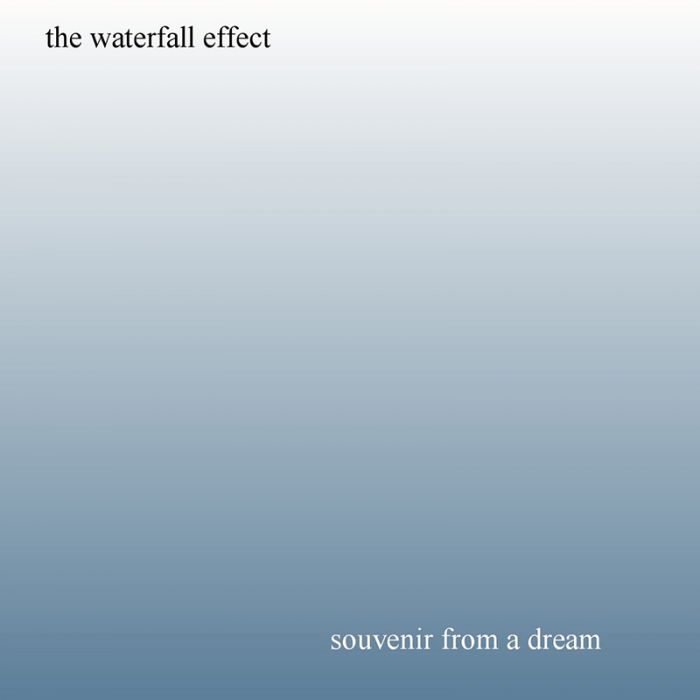Souvenir from a Dream by The Waterfall Effect (Review)

If I discovered that John Kupchik’s entire record collection consisted of Flying Saucer Attack’s Distance, AMP’s Perception, Slowdive’s Pygmalion, and Aphex Twin’s Selected Ambient Works, Volume 2, it wouldn’t surprise me at all. The first time I listened to Souvenir from a Dream, I was prepared to talk about how derivative it sounded. If you have any passing familiarity with the works of David Pearce or Richard Walker, you’ll have a very good idea of what to expect here. But then I listened to it on a lazy Saturday afternoon, lulled into a sleepy haze by both the music and the heady prose of the novel I was reading at the time.
Despite the album’s fairly minimal nature, there’s something vast and alien about these songs. Despite it’s romantic-sounding title, “Slow Kisses” sounds more to me like the starless drifts of deep space, where ancient spacecraft float forever in the void. Deep drones shift and transform throughout the course of the song, while mechanical rhythms are buried deep within, occasionally breaking free from the gravity well. Every single sound in the recording is smothered in reverb and echo, so that each becomes endless. It becomes hard to tell if the melody you’re hearing really does exist, or if it’s just one you heard 15 minutes ago still echoing somewhere on the edge of your perception.
On “As The Clouds Go By,” the squeak of the strings becomes as important as the solemn melody played. Over its 2 minutes, the number of guitar layers gradually increases, creating complexity by just layering one simplicity on another. “Retreat From Love” may be the most musical number on here, but that doesn’t keep it from being one of the most claustrophobic. Like Lycia’s earliest work, it’s a isolating mix of noisy guitars, booming basslines, and cold drum machines. And Kupchik’s voice floats in that mix somewhere, alien and disembodied.
But the two most affecting tracks would be album’s closers. “Anyone Else Isn’t You“ ‘s faux strings resound with a sense of sorrow and longing that borders on the tragic. Swirling around the synths and Kupchik’s vocals are, well I don’t know. Maybe it’s tape hiss from the 4-track or more synthwork. But if the mental images I’m getting are at all accurate, I’m hearing something akin to those winds that whip across Antarctica in the dead of winter, or maybe the last storms radiating from a dying star; strange how something so atmospheric can be so smothering. “Too Blurred To Trace” is more than just a song title; it’s the only way to accurately describe this song, and maybe even the whole album. I’m not even sure if this really is a song. It sounds more like all of the reverb, delay, and echoes from the preceding songs decided to coalesce into a track.
Methinks that if I hadn’t been reading to this music, or slowly dozing off and waking up to it, it wouldn’t have had this much of an effect on me. And your mileage will vary. Even though its influences are obvious, I can’t help but feel like something in this music is now inside me. And now, when I listen to it (which can be staggering feat at times), I don’t hear the obvious Halstead-isms and Bristol influences. No, I find myself trapped within The Waterfall Effect’s event horizon, surrounded sound of greying stars (or relationships) preparing to collapse in on themselves. It’s a lonely place, unspeakably sad and beautifully alien.